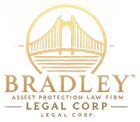Are you looking to amend your LLC Operating Agreement or Articles of Organization? Understanding how to properly make these amendments is crucial for maintaining compliance and ensuring your business runs smoothly. In this detailed guide, we’ll walk you through the processes involved, key considerations, and common FAQs, all designed to boost your LLC’s operational efficiency.
What is an LLC Operating Agreement?
An LLC Operating Agreement is a vital document that outlines the rights, duties, and privileges of all members involved in the LLC. It serves as your business’s internal manual, detailing how the company operates and making official member agreements. Importantly, a well-drafted Operating Agreement can enhance **asset protection** and ensure proper adherence to formalities, which is critical if the LLC is challenged in court.
Why Are LLC Operating Agreements Important?
1. Asset Protection: The primary function of an LLC structure is to provide personal liability protection for its members. If properly maintained, an LLC can safeguard members’ personal assets from business liabilities. A comprehensive Operating Agreement reinforces the existence of the LLC as a separate entity and can help prove to courts that the business is not just an extension of its owners. This separation is crucial during litigation or bankruptcy proceedings.
2. Maintaining Formalities: Having an Operating Agreement helps establish and maintain the formalities required for LLCs, such as structuring management roles and decision-making processes. If an LLC fails to adhere to these formalities, it risks losing its limited liability protection—a situation known as “piercing the corporate veil.” Courts typically look for documentation of these formalities when assessing whether to uphold the integrity of the LLC structure during disputes.
3. Legal Clarity and Structure: This document provides clarity about the roles and responsibilities of members and managers, reducing the potential for conflicts. A clear structure can also facilitate smoother operations and decision-making.
4. Value of Professional Drafting: It’s crucial that Operating Agreements be drafted by experienced asset protection attorneys. Copying templates from the internet or using non-law firm legal service providers can lead to gaps and inconsistencies that can undermine the agreement’s effectiveness. Legal expertise ensures compliance with state laws and tailored provisions suited to your specific needs, preventing costly mistakes in the future.
Key Steps to Amend Your LLC Operating Agreement
1. Review the Original Operating Agreement: Confirm that your original document includes a section that allows for amendments. This will typically specify how changes can be made by member consensus.
2. Draft Your Amendment: Create the Amendment to the LLC Operating Agreement by clearly writing out the intended changes. Be sure to include a statement that indicates approval from all necessary members.
Understanding the Articles of Organization
The Articles of Organization function as your LLC’s charter, establishing its existence within the state. This important document must be filed with the Secretary of State or the relevant state agency. Once approved, it legally forms your LLC as a registered business entity.
Essential Information Included in the Articles of Organization
Regardless of your business type or size, most states require that your Articles of Organization include:
– LLC Name and Principal Address: The legal name and primary business address.
– Nature of Business: A broad statement describing your business purpose, typically phrased as “to engage in any lawful activity.”
– Registered Agent: Details of your designated registered agent authorized to accept legal documents on behalf of your LLC.
– Management Structure: Names of managers and members, if known at the time of filing.
How to Amend the Articles of Organization
To make amendments to the Articles of Organization, follow these steps:
1. Contact Your State Department: Start by checking with the relevant state department where your LLC was originally filed.
2. Obtain the Amendment Form: Request the specific amendment form and follow the filing instructions provided by the state.
3. Complete and Submit: Fill out the amendment form accurately and submit it along with any required filing fees.
Notable Cases of Piercing the Corporate Veil
Maintaining formalities is critical to preserving the limited liability benefits of an LLC. Failure to do so can lead to “piercing the corporate veil,” which means that courts may hold LLC members personally liable for business debts. Here are three notable cases that illustrate this point:
Case 1: In re: The limited liability company of A&M and R
**Overview**: In this case, the members of an LLC failed to maintain separate records and did not observe basic corporate formalities such as holding regular meetings or creating meeting minutes. When the LLC faced a creditor lawsuit, the court found that the members had treated the LLC as an extension of their personal finances.
Outcome: Because of the lack of formalities and documentation, the court pierced the corporate veil and allowed the creditor to go after the personal assets of the members, illustrating the importance of proper LLC management.
Case 2: Kirk v. B.B.O.S.A. LLC
**Overview**: In this case, the LLC registered to operate a business failed to adhere to its own operating procedures, such as consistently designating a registered agent and maintaining regular financial records. When disputes arose, the court looked at how the members failed to treat the LLC as a separate entity.
Outcome: The court ruled that, due to the lack of adherence to formalities, the members could not claim limited liability protection. As a result, they became personally responsible for the LLC’s debts.
Case 3: Associated Vendors, Inc. v. Oakland Meat Co., Inc.
**Overview**: In this landmark case, a supplier, Associated Vendors, sold goods to Oakland Meat Co., which failed to pay its debts. The court found that Oakland Meat had not maintained adequate corporate formalities. For example, there was a lack of records, and the owner commingled personal and business funds.
Outcome: The court ruled that the owners acted more like a sole proprietorship than a separate entity. Because the LLC members did not uphold the necessary formalities, the court allowed the supplier to pierce the corporate veil and hold the individual owners personally liable for the company’s debts.
These cases serve as potent reminders of the importance of maintaining formalities to protect LLC members from personal liability.
Frequently Asked Questions (FAQs)
1. Why do I need to amend my LLC Operating Agreement?
Changes such as adding a new member, changing ownership percentages, or altering management structures require amendments to keep your agreement up-to-date.
2. What happens if my Articles of Organization are incorrect?
Failure to amend incorrect information can lead to legal issues or penalties, making it essential to keep your records current.
3. Is it necessary to have an attorney to amend these documents?
While it’s not strictly necessary, consulting with a legal professional can ensure compliance with state laws and prevent potential mistakes.
4. Can I just download a template for my Operating Agreement?
Using a generic template may seem like a cost-effective solution, but it often lacks the necessary customization for your specific business situation. To ensure your agreement holds up in legal challenges and effectively provides asset protection, it’s best to consult with an experienced attorney.
Ensure Your LLC Is Up-to-Date
Regularly updating your LLC Operating Agreement and Articles of Organization is essential for legal compliance and effective business management. A properly drafted Operating Agreement not only clarifies the business structure but also fortifies your asset protection strategy. Following these straightforward steps will help you navigate the amendment process smoothly.
By: Brian T. Bradley, Esq.




